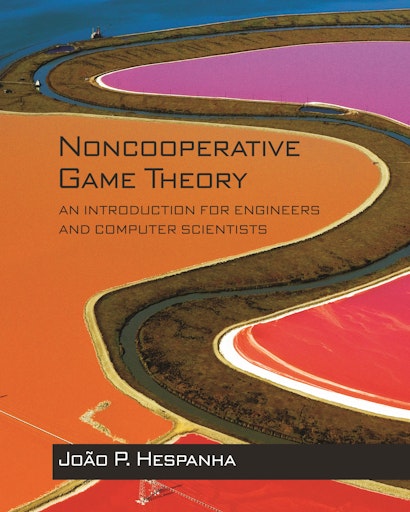Noncooperative Game Theory: An Introduction for Engineers and Computer Scientists


Hardcover
ebook (PDF via app)
- Sale Price:
- $58.80/£49.00
- Price:
-
$84.00/£70.00 - ISBN:
- Published:
- Jun 13, 2017
- Copyright:
- 2017
30% off with code PUP30
-
Audio and ebooks (EPUB and PDF) purchased from this site must be accessed on the
91ÌÒÉ« app. After purchasing, you will receive an email with
instructions to access your purchase.
About audio and ebooks - Request Exam Copy
Noncooperative Game Theory is aimed at students interested in using game theory as a design methodology for solving problems in engineering and computer science. João Hespanha shows that such design challenges can be analyzed through game theoretical perspectives that help to pinpoint each problem’s essence: Who are the players? What are their goals? Will the solution to âthe gameâ solve the original design problem? Using the fundamentals of game theory, Hespanha explores these issues and more.
The use of game theory in technology design is a recent development arising from the intrinsic limitations of classical optimization-based designs. In optimization, one attempts to find values for parameters that minimize suitably defined criteriaâsuch as monetary cost, energy consumption, or heat generated. However, in most engineering applications, there is always some uncertainty as to how the selected parameters will affect the final objective. Through a sequential and easy-to-understand discussion, Hespanha examines how to make sure that the selection leads to acceptable performance, even in the presence of uncertaintyâthe unforgiving variable that can wreck engineering designs. Hespanha looks at such standard topics as zero-sum, non-zero-sum, and dynamics games and includes a MATLAB guide to coding.
Noncooperative Game Theory offers students a fresh way of approaching engineering and computer science applications.
- An introduction to game theory applications for students of engineering and computer science
- Materials presented sequentially and in an easy-to-understand fashion
- Topics explore zero-sum, non-zero-sum, and dynamics games
- MATLAB commands are included